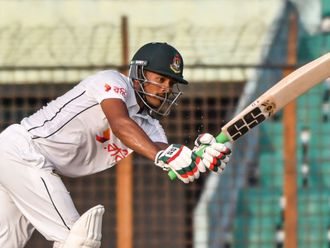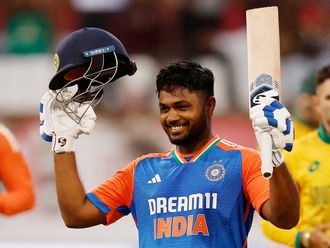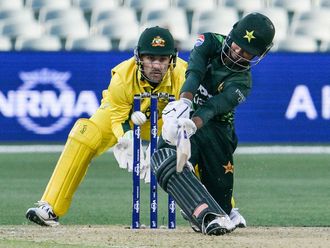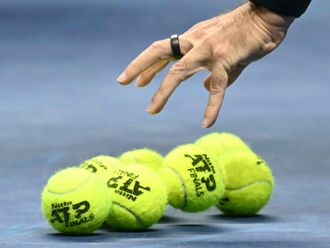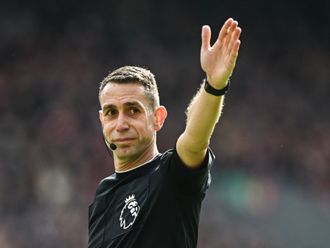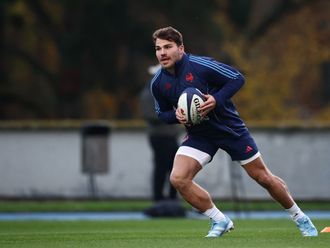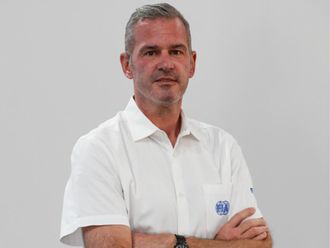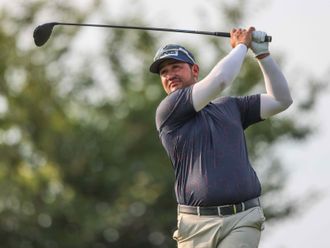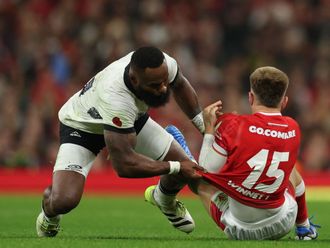Sydney: Pakistan-born leg-spinner Fawad Ahmad officially became an Australian citizen on Wednesday, the same day the first Ashes Test against England was to start.
The former refugee, 31, had his bid for citizenship accepted last week, making him eligible to play in the Ashes, and on Wednesday attended the final protocol — a citizenship ceremony in Melbourne.
“It is a great day for me and it has been a dream of mine to become a citizen of Australia ever since I arrived here at the beginning of 2010,” he said.
Cricket Australia chief James Sutherland called it “a proud day for Australian cricket”.
“Fawad Ahmad is a talented cricketer, but most of all he is a wonderful human being,” he said.
“He has confronted many challenges along the way, so today is a day for celebration. We are incredibly happy for him.”
Ahmad returned from England in June where he was playing for Australia A after the Australian government moved amendments to the Citizenship Act through the upper house of parliament to help fast-track his application.
The legislation allows the immigration minister to apply shorter residential requirements on some citizenship applicants, such as elite athletes with the potential to represent Australia, as in Ahmad’s case.
Ahmad has been named in the Australia A squad for a tour of Africa this month, despite also being in contention for the Ashes.
The opening Test of the five-match Ashes series started in Nottingham on Wednesday with Nathan Lyon the only spin bowler in Australia’s 16-man squad.
Meanwhile, coach Darren Lehmann and captain Michael Clarke recalled their past playing days and how their relationship works now as coach and Captain.
Lehmann and Clarke first played together for Australia in 2003 and went on to play seven Tests and 18 ODIs.
It has been well documented that Lehmann was prepared to step down from the Australian squad to allow young players, like Clarke, to come through the ranks; something that Clarke remembers well.
“He thought if it meant him standing down for me to stay in the team, then he was willing to do that, which was very nice for me as a young 23-year-old. I certainly didn’t expect that and I was more than willing to sit back and wait my turn because he was a great player and I enjoyed playing with him,” Clarke said.
Lehmann also recalls Clarke’s early days in the Australian side.
“He was exciting at that age and the way he played the game, with that attacking brand of cricket and that certainly hasn’t changed over the years,” said Lehmann.
Clarke spoke of his connection with Lehmann since they stopped playing together.
“I have always stayed in contact with him and every time we are in Queensland I have seen him and caught up.
“I have really enjoyed the last week, it’s been nice to get back and spend some time with him and talk about cricket. As a young kid in the Australian team I used to spend a lot of time with him and sit and talk and learn about all the great things about cricket, and its been nice this week to re-live a few of those memories,” Clarke said.
Both coach and captain recognise what one other brings to the team and also what similarities they share.
“I think our minds, in regards to the way we play on the field, are very similar. He was quite an aggressive player who liked to keep the game rolling and I think we have a lot in common there,” Clarke said.
“Michael will have a big input in the day-to-day running of the team and out in the field the coaching staff will certainly let him run it his way. He is an aggressive player as we know and an aggressive Captain, which is pretty much what I like anyway,” said Lehmann.
“He has done a great job so far with the captaincy role and now he can just concentrate on that. We have become very close very quickly and we are going in the same direction,” Lehmann added.



